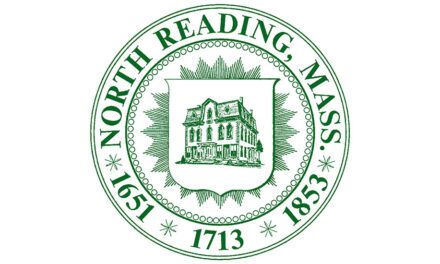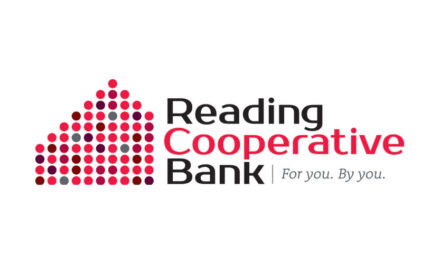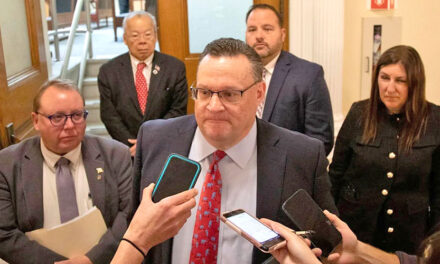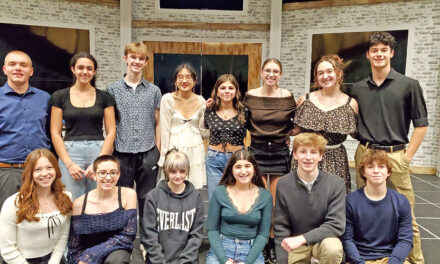‘Preparing our students to be future ready’
Published in the April 5, 2018 edition
By JILLIAN STRING
NORTH READING — Director of Digital Learning Dan Downs shared the district’s digital learning and technology plan with School Committee members on March 26.
In keeping with the public school strategic plan, known as NRPS 2021, the district has adopted the Future Ready Framework to support digital learning.
According to the Future Ready Schools interactive dashboard, “The Future Ready district pledge is designed to set out a road map to achieve success and to commit districts to move as quickly as possible toward a shared vision of preparing students for success in college, career, and citizenship. This road map can only be accomplished through a systemic approach to change, as outlined in the Future Ready Framework.
It continues: “With personalized student learning at the center, a district must align each of the seven key categories, called ‘Gears,’ in order to ensure a successful digital conversion. The seven gears, curriculum, instruction, and assessment, use of space and time, robust infrastructure, data and privacy, community partnerships, personalized professional learning, and budget and resources, combined with collaborative leadership, leads to ‘innovation empowered by digital learning.’”
“This plan, as much as it is to set goals for the next three years, it’s also about celebrating what we’ve accomplished,” Downs said. “I look forward to implementing the first steps in setting these goals in the coming year.”
NRPS ahead of the curve: #GoOpen
Accomplishments outlined in the plan include North Reading Public Schools’ (NRPS) recognition as one of three #GoOpen launch districts in New England, and NRPS serving as host for the #GoOpen Regional Summit at Amazon Cambridge in 2017.
According to the Department of Education’s Office of Educational Technology, “The U.S. Department of Education’s #GoOpen initiative supports states and districts choosing to transition to the use of openly licensed educational resources to transform teaching and learning.”
The NRPS was one of 15 districts awarded a Digital Partnership Schools Grant from the Department of Elementary and Secondary Education (DESE). This grant funded a wired and wireless connectivity infrastructure within each of the three elementary schools.
In 2016, NRPS became one of 14 Catalyst MAPLE (Massachusetts Personalized Learning Edtech) districts, pledging a commitment to develop a strategic plan focusing on personalized learning. In keeping with MAPLE, the district introduced the one-to-one learning initiative during the 2017-18 school year, providing each incoming seventh grader with a personal Chromebook. The goal is to provide Chromebooks for all students in grades 7-12 by the 2021-22 school year.
“The monies that we asked for through the capital improvement, is that enough to get all of (the Chromebooks) for the seventh grade, and in doing so, what is the life expectancy of that Chromebook? Will it last them until they graduate?” committee member Janine Imbriano asked.
Downs indicated that the Chromebooks should last the students for four to five years.
“The good news with the Chromebook is it’s really a minimal piece of technology,” School Committee Chairman Mel Webster said, adding, “There’s really no on-board storage; everything’s up in the cloud. Maybe processing speeds will get faster, but where they are right now, it’s not going to hurt the kids if in three years there’s a new generation of Chromebooks.”
Beyond the one-to-one learning initiative, committee member Julie Koepke asked Downs to elaborate upon what personalized learning looks like across the district.
“It’s really how do we support, blended with the devices, instruction with the teachers,” Downs stated. “It could look like a station-rotation model, where students are learning different types of components around a classroom, as students rotate around a classroom. It also looks at how do we support teachers in target or data assisted instruction. On the teachers’ side, how are we working with teachers to improve and develop lessons and target learning goals for students.”
Committee member Scott Buckley expressed concerns about supporting the plan’s initiatives within projected budgets.
“We’ve taken huge steps in this field, and the concern I have is that we can’t support it in the budget,” Buckley said. “My concern is that we get the Chromebooks and we don’t have the resources to fully use them. It doesn’t look like there is more money on the horizon, so how will that impact the ability to actually implement this great plan?”
“Right now we don’t have huge infrastructure hurdles that come up as we add devices, so as long as we can continue to sustain our additional devices, the additional overhead is minimal,” Downs explained.
Showcasing success
Committee members applauded the efforts of Downs in creating such a comprehensive plan.
“I think the work that our kids are doing compared to what I see kids in other districts doing, you can’t compare,” Koepke stated. “On that note, I think we need to do more promotion of the fine work that we are doing in digital learning.”
According to Assistant Superintendent Dr. Patrick Daly, the district will be starting a campaign called Leading the Nation, with digital learning at the forefront. This will be part of the DESE’s Leading the Nation initiative to showcase student academic and creative successes.
“We’ve come a long way in two and a half years to having someone that’s focused 100 percent on digital learning versus a person who’s split 30 percent, 20 percent, 30 percent, 20 percent as Patrick was, all over the place,” Webster commented. “I think (Downs) has done a good job reaching out to local industries. I encourage (Downs) to continue reaching out and establishing relationships with local businesses.”
Koepke agreed. The plan is “very comprehensive, dynamic, and I think it’s taking us in the direction that we hope to go,” she concluded.




